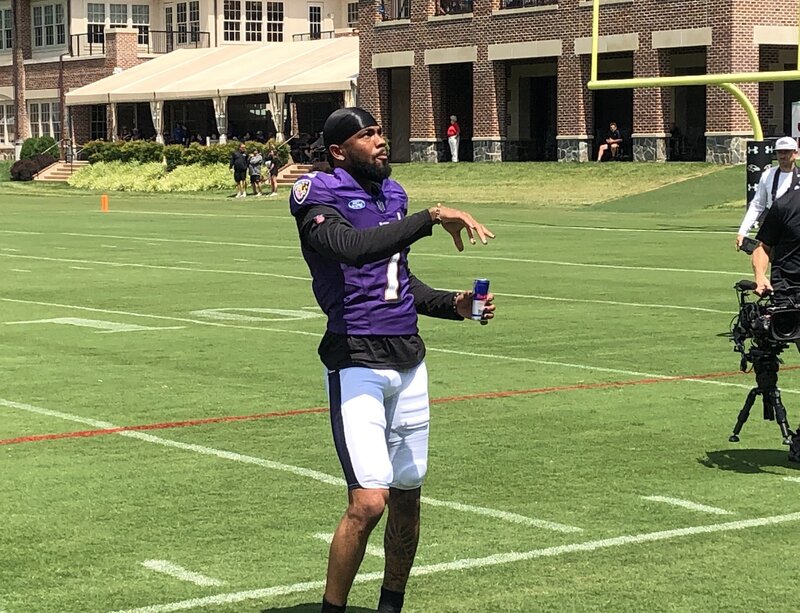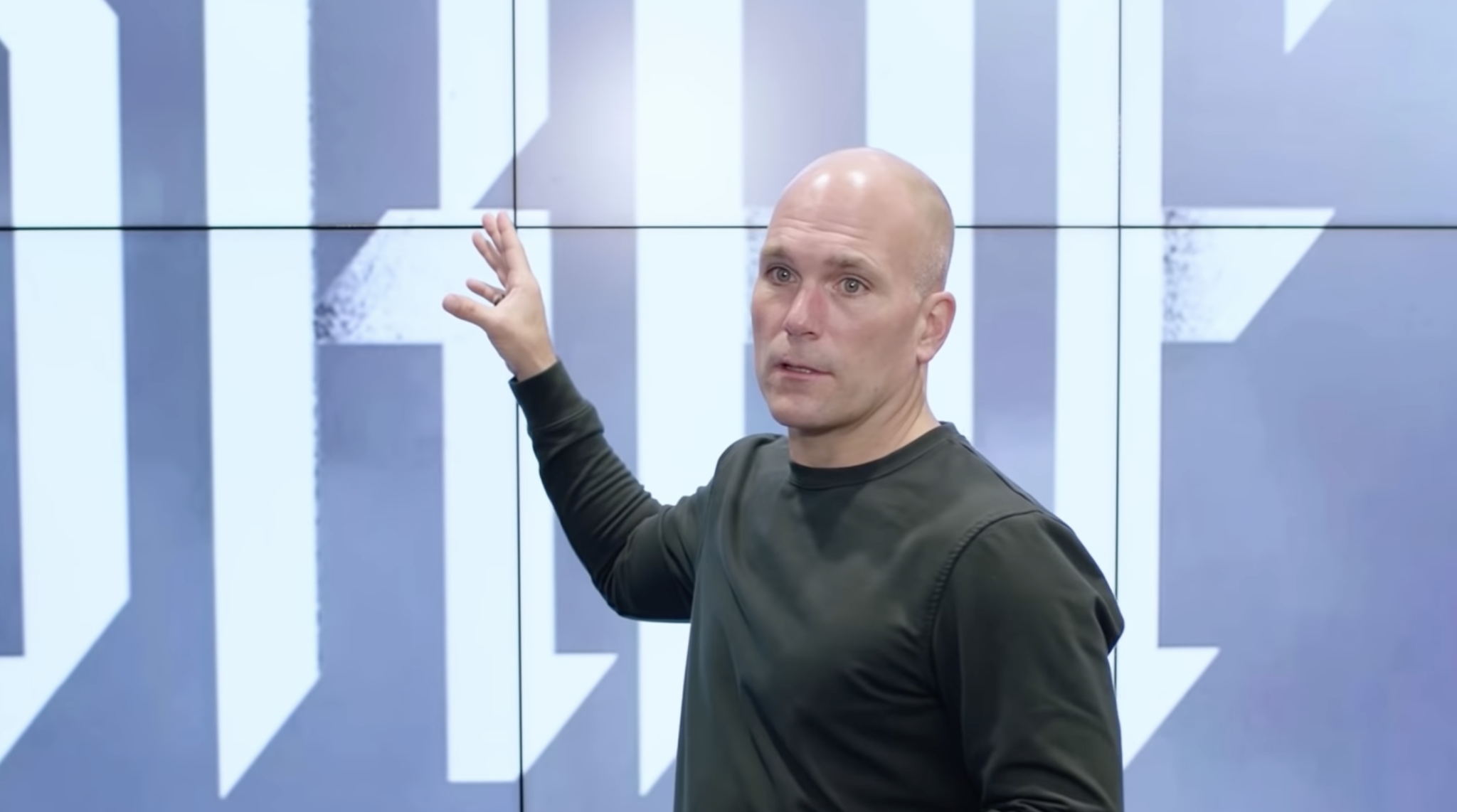Bisciotti knew something was awry when his mobile phone rang the night of the Redskins game because he and Harbaugh never speak after losses. Early on in their relationship they agreed that it was counterproductive to discuss a loss on Sunday night. They both felt like they needed a good night’s sleep because they’d both be less emotional on Monday. And even then, Bisciotti would wait until the end of the day on Monday to call Harbaugh so there was even more clarity and less emotion.
“It’s a tradition,” said Bisciotti, who says he usually checks in with Harbaugh on Wednesdays and Fridays for updates. “We could talk about downsides after a win, and it can be productive.”
One thing that everyone agreed on was that Joe Flacco was going to be the quarterback for the foreseeable future no matter the outcome of the playoffs in January.
What was the downside?
“We got into it and he said, ‘I’m gonna do it,’” Bisciotti said. “We went through the pros and cons. I said, ‘You’re going to be criticized and you’ve already thought about all of these things.’ He had gone through it all in his head. He knew the ramifications. If we continue to lose and we don’t make the playoffs, John would’ve been attacked. He was running it by me and Ozzie and making sure we both had his back. He didn’t care what the criticism was and if he can’t bring Cam back next year he figured, ‘I might as well do it now.’
“I didn’t see it as having much of a downside.”
So what was Bisciotti’s role in this decision?
“My job is to care about how John is viewed,” Bisciotti said. “If I had strong feelings or if I thought this was desperate or there wasn’t enough to gain, I might’ve tried to turn his opinion. I think I could’ve turned him. He was 90% sure. I don’t think he was 100% sure. Really, I don’t think anyone is ever 100% sure when you make a monumental shift in personnel. I would’ve talked him out of it if I felt strong enough.”
“But after five years and Cam was one of his best friends in the profession…how do you not support John when he’s come to that tough of a decision? I said to John that night, ‘If we fall out of playoffs, I will never question your decision. I’m giving you my opinion now and it won’t change. Ozzie and I have your back if this is what you think we need to do.’ ”
It’s at these times of great decisions that the destiny of the team is shaped and the open conversation and the consideration of downside management keeps Harbaugh on his toes. He likes the partnership aspect of it and the extra ears for wisdom and feedback.
“I have made him, very reluctantly, prepare to lose,” said Bisciotti of his downside management philosophy. “It’s just like with the Cam decision – if you feel it’s the right thing to do, what’s the worst thing that can happen? ‘I believe in you, we believe in you, we believe in Joe. We’re going to pick up pieces.’ If the worst thing that can happen is that you don’t make playoffs in your fifth year, well, then you’ve earned the ability to fail. If the worst-case scenario is that we’re 9-7 and out of the playoffs, and we’re all comfortable with that scenario, then do it.”
Bisciotti does this exercise every Friday with Harbaugh.
“I always prepare to lose because that’s the worst result every week,” Bisciotti said. “If you prepare to lose and assess the aftermath of a loss, it clears your mind and makes you better prepared to win. Sometimes people fear losing so much that they alter the decision they’re making in trying to win.”
Bisciotti likened it to billiards, his personal participatory game of choice and skill.
“If I’m in a best-of-five game of pool and I have a 2-0 lead, and I take an aggressive shot trying to end the game, I’ve already assessed the downside,” he said. “If I sink the 8-ball and lose, I’m still up 2-1. And if I make this risky, incredible shot then I’ve closed it out. I’ve won. So in mentally preparing, I ask ‘Why would you take a chance?’ My argument is that if I take the chance, I still have rope left.”
Ozzie Newsome had another name for it: “We used to call it the barber shop,” the general manager said. “Now, we call it, ‘The scrimmage.’ John and I, we talk about everything. What I try and do is help John look at the downside and the upside of every decision. And, when I have to make a decision, John does the same thing for me. What is the upside on us making a trade or giving away a draft pick or something like that? And what’s the downside of not having a [former Ravens OLB] Jarret Johnson on our football team? So, what we try to do is to look at the upside and the downside. That’s what I do for John. I try to paint the picture so that he can have as much information that he has, so he can go about making that decision. It came down to when he walked into my office and told me he was going to make that decision, he had a peace about himself. That’s all I could ask from him. I said, ‘You want [to]?’ And he said, ‘Yes, I think this is the right thing to do.’
“The process of hiring [offensive coordinator] Jim Caldwell was something that John [Harbaugh] and I talked about way before, and why we wanted to do it and why he wanted to do it.
“He did not just walk in my office that Monday morning and say, ‘I want to make that move.’ As a matter of fact, when we got off the bus downtown and we both were driving home from the Redskins game, John and I talked about it that night. He said, ‘I think I might have to make a decision,’ and was telling me all the reasons why. So, there’s a process in place. What we try to do is we try to minimize the downside and maximize the upside. The other thing about that is, Steve [Bisciotti] and John knew I had already gone through that when Brian [Billick] fired Jim Fassel. So, I had a history of why we did it and what we went through to do it. I was able to [say], ‘This is the reason why we did it back then. How does it match up?’ ”
In the end, Cam Cameron did a lot of things right. He did a whole lot of things right. But the Ravens organizational philosophy is based on winning a Super Bowl. The offense wasn’t as good as it should be, and the team was making a huge decision, a huge investment in becoming an offensive team.
Because of the pending contract for Flacco and Harbaugh’s obvious affection for Cameron, many around the organization believed and reported that Bisciotti was more intimately involved in the firing.
Bisciotti vociferously disputes that theory.
“To think that I could help grow John into the leader that he is and then tell him to fire an assistant coach?” Bisciotti said. “It just goes against everything I believe. Then you’d have to believe that everything else you’ve read over the last 10 years is a lie. I didn’t get where I was in my business by overruling people who have the authority in their contracts and in their handshake with me.”
When Harbaugh was pressed, he was more succinct. “I could’ve told Steve after I did it,” Harbaugh said. “In all fairness he wasn’t going to talk me out of it. Steve really had nothing to do with it because we had talked about all kinds of scenarios. Steve and I talk all the time. Honestly, I talked more to Ozzie about it.”
Harbaugh came into work at 5 a.m. on the Monday after the Redskins game. Cameron had already been there since 4 a.m. watching film and preparing for the Broncos. Cam sensed tension.
“You can tell in decision-makers’ eyes, in their body language,” Cameron later told The New York Times.
“Cam was great about it,” Harbaugh said. “He said, ‘I saw it coming’ and that he completely understood. He even said it was the right thing to do.”
Cameron later said: “If I’m in charge, I’m saying: ‘Why are we inconsistent? We need to get the team’s attention.’ It was a brilliant move. Everyone on the team took a look in the mirror after that.”
Cameron later accepted the job as offensive coordinator at LSU and said to local reporters in Baton Rouge: “Sometimes a change needs to be made. Obviously, he felt like it needed to be done. Quoting Ray Rice, ‘It was a wakeup call.’ Good is not good enough. The Ravens were trying to be great and sometimes you’ve got to do something to get people moving in a different direction to try to be great.”
“I find it surprising that people found it surprising,” Cameron said. “I have so much respect for the organization and the people who made the decision there’s no way I could be bitter. No mixed emotions. Something needed to be done. If it had to be me so John Harbaugh and everybody could benefit, I’m fine with that. Any time you make a change at head coach, coordinator, and a quarterback it’s a gamble. But great leaders make smart gambles.”
































